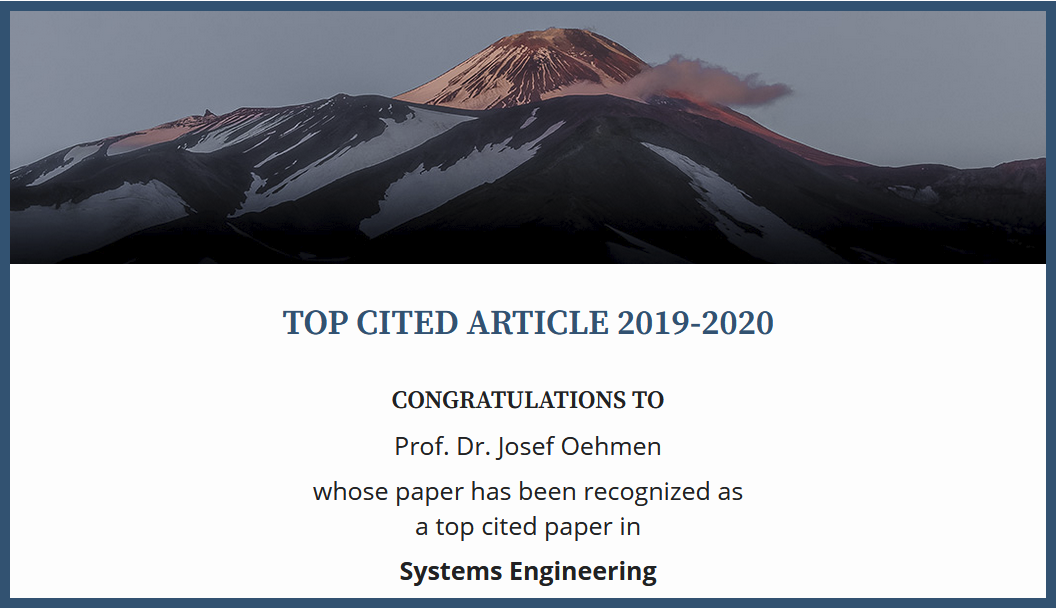In the news: A “Most Cited” paper award from Systems Engineering!
The good news just keeps piling up! :-) I do not mind it at all.
One of my recent articles on resilience, titled “Conceptualizing resilience in engineering systems: An analysis of the literature”, was just awarded the badge-of-honor of one of the Systems Engineering Journal most cited papers. I am thrilled!
The article is open-access and a fun read (we did try to avoid the worst of academic jargon in it, who knows, maybe that is one of the reasons people are reading and citing it). Check it out here.
As a teaser, I am copying the abstract below:
It is now widely recognized that many important events in the life cycle of complex engineering systems cannot be foreseen in advance. From its origin in ecological systems, operating without the use of foresight, resilience theory prescribes presuming ignorance about the future, and designing systems to manage unexpected events in whatever form they may take. However, much confusion remains as to what constitutes a resilient system and the implications for engineering systems. Taking steps toward a synthesis across a fragmented body of research, this paper analyses 251 definitions in the resilience literature, aiming to clarify key distinctions in the resilience concept. Asking resilience of what, to what, and how, we first distinguish systems serving higher ends and systems that are ends in themselves, and, within these, performance variables to be minimized, preserved, or maximized. Second, we distinguish systems subject to adverse events, adverse change, turbulence, favorable events, favorable change, and variation. Finally, we distinguish systems capable of recovery, absorption, improvement, graceful degradation, minimal deterioration, and survival. Together, these distinctions outline a morphology of resilient systems and suggest answers to the principal design questions, which must be asked of any resilient engineering system.
I know it looks like I made this myself in MS Paint, but I promise it is the real deal!
